PICTURE SLIDESHOW: Celebrating 70 years of our NHS
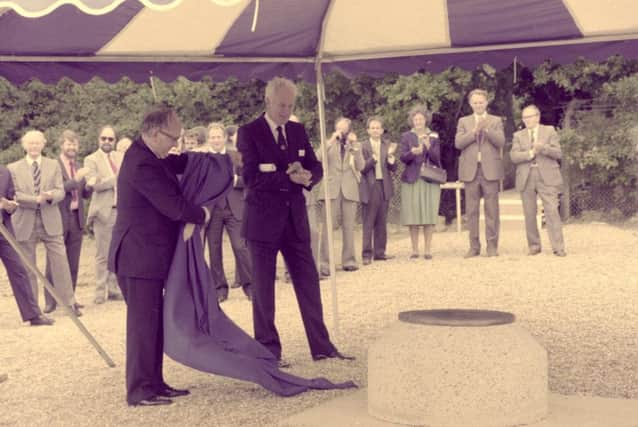

This momentous milestone offers a unique opportunity to celebrate local NHS achievements, pay tribute to the NHS staff and volunteers who help shape the service, and look to a future vision of the NHS.
In 1948, for the first time, prevention, diagnosis and treatment were brought together under one umbrella organisation to create one of the most comprehensive health services in the world: the National Health Service.
Advertisement
Hide AdAdvertisement
Hide AdOver the last 70 years, the hard work and skills of NHS staff, coupled with medical progress, has continually helped drive up standards and quality of care for millions.
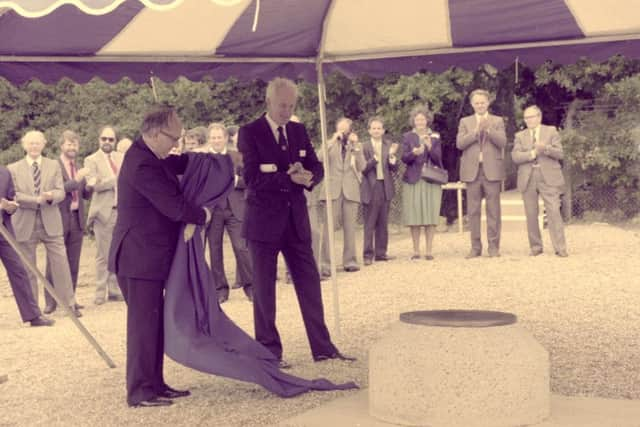

People are now living longer than they did in 1948 – life expectancy was 61 years. In 2018, it is 81 years. Deaths from cancer and heart disease have fallen dramatically and Britain is one of the safest places in the world to give birth.
The NHS has shown the world the way to healthcare, not as a privilege to be paid for, but as a fundamental human right and the values of the NHS – universal, tax-funded and free at the point of need, remain as fundamental today to the NHS, as they were when launched back in 1948.
When the NHS was formed on July 5, 1948 the newly-formed ‘Hastings Hospital Management Committee’ took over the running of all the hospitals and institutions in Hastings and Rother.
Advertisement
Hide AdAdvertisement
Hide AdAt the time there were 20 sites with 1,548 beds offering care locally.
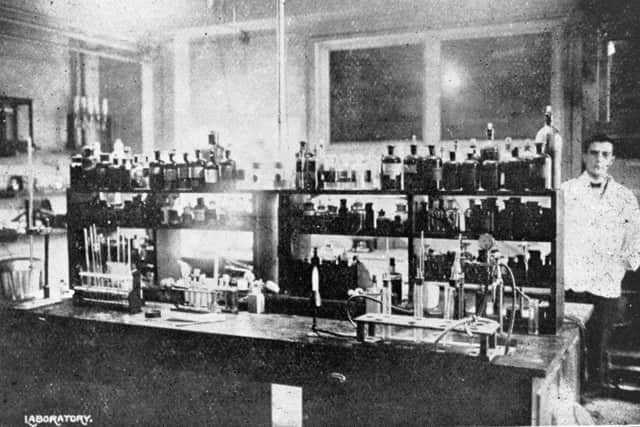

These included a Smallpox Hospital at Brede, Sanatoria at Robertsbridge and Fairlight, TB Clinics, Convalescent Homes in Bexhill along with the Royal East Sussex, Buchanan, St Helen’s, Eversfield, Battle and Rye Hospitals.
There have been tremendous achievements in the NHS locally over the last 70 years.
These have been as a result of many thousands of staff and volunteers who have worked in hospitals, clinics and in the community providing care and treatment.
NOTABLE DATES:
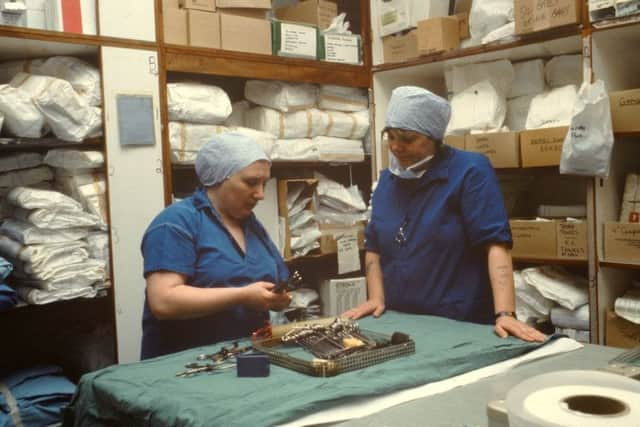

Advertisement
Hide AdAdvertisement
Hide AdIn 1948, a cataract operation meant a week of total immobility with the patient’s head supported by sandbags. Eye surgery is now over within 20 minutes, and most patients are out of hospital after a couple of hours
In 1958, hip replacements were so unusual that the surgeon who invented them asked patients to agree to return them post-mortem. The NHS now carries out thousands of these replacements every week. In East Sussex some hip replacement patients are walking four hours after surgery and home within 24 hours of surgery.
The world waited until 1978 for Britain to produce the first test-tube baby; 19,000 IVF babies are now born here each year.
The breast-screening programme introduced in 1988 now saves the lives of 1,300 women a year.
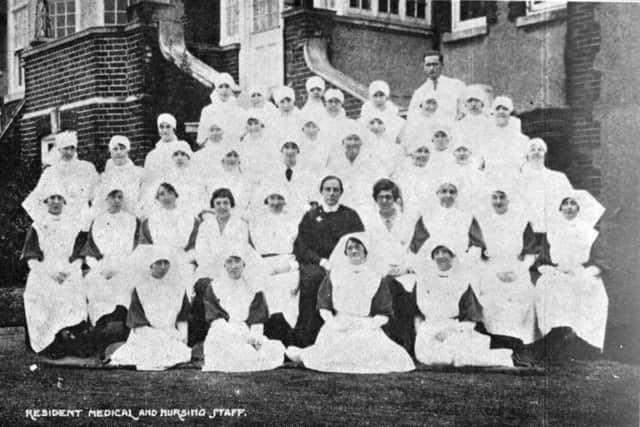

Advertisement
Hide AdAdvertisement
Hide AdIn 1948 one mother in 500 died in child birth – now the figure is less than one (0.82) in 10,000.
The NHS in England treats 1 million people every 36 hours.
The NHS in England is expected to spend £126 billion in 2018/19.
There are more than 7,400 GP practices in England.
In March 2017, the NHS employed 106,430 doctors, 285,893 nurses and health visitors, 21,597 midwives, 132,673 scientific, therapeutic and technical staff (across England’s hospital and community healthcare services).
There were 16 million total hospital admissions in England in 2015/16, 28 per cent more than a decade earlier.
Advertisement
Hide AdAdvertisement
Hide AdThe total annual attendances at England’s accident and emergency departments was 23 million in 2016/17, 23.5 per cent higher than a decade earlier.
WHAT ELSE HAPPENED IN 1948?
Hastings Food rationing existed from The Ministry of Food.
Shortage of newsprint led to appeals in the local paper to “Be a good neighbour and pass this newspaper on!”
Hastings has eight cinemas including the The Ritz, The Regal and The Gaiety
19,000 turn up to the Central Cricket Ground (now Priory Meadow Shopping Centre) to watch Don Bradman score 143 for the Australian Cricket team against a South of England team.
Advertisement
Hide AdAdvertisement
Hide AdTowns throughout southern England experienced breakdowns on electricity supplies – stopping trolley buses and bringing everything to a halt.
Mayor opens Hastings Stadium at the Pilot Field on April 21 – 5,000 turn up to watch Hastings Saxons Speedway beat Stoke.
DID YOU KNOW?
In 1948, a cataract operation meant a week of total immobility with the patient’s head supported by sandbags. Eye surgery is now over within 20 minutes, and most patients are out of hospital after a couple of hours
In 1958, hip replacements were so unusual that the surgeon who invented them asked patients to agree to return them post-mortem. The NHS now carries out thousands of these replacements every week. In East Sussex some hip replacement patients are walking four hours after surgery and home within 24 hours of surgery.
Advertisement
Hide AdAdvertisement
Hide AdThe world waited until 1978 for Britain to produce the first test-tube baby; 19,000 IVF babies are now born here each year.
The breast-screening programme introduced in 1988 now saves the lives of 1,300 women a year.
In 1948 one mother in 500 died in child birth – now the figure is less than one (0.82) in 10,000.
The NHS in England treats 1 million people every 36 hours.
The NHS in England is expected to spend £126 billion in 2018/19.
There are more than 7,400 GP practices in England.
Advertisement
Hide AdAdvertisement
Hide AdIn March 2017, the NHS employed 106,430 doctors, 285,893 nurses and health visitors, 21,597 midwives, 132,673 scientific, therapeutic and technical staff (across England’s hospital and community healthcare services).
There were 16 million total hospital admissions in England in 2015/16, 28 per cent more than a decade earlier.
The total annual attendances at England’s accident and emergency departments was 23 million in 2016/17, 23.5 per cent higher than a decade earlier.